(1) Site arrangement
According to the on-site reconnaissance situation, after entering the site, the finishing work of the construction site should be carried out first, mainly including the cleaning and leveling of the surface of the original cultivated field, to make sufficient preparations for the hoisting and stacking of the
steel pipe piles and the positioning of the pile drivers after they enter the site. preparation. Site leveling and cleaning shall be done manually and mechanically.
(2) Pile position measurement
According to the design position of the pile and the layout of the measurement control network, draw the pile position map and the measurement and stakeout data. According to the national measurement standard, the center point of the pile is released on the spot, and a Φ6 length of about Φ6 is driven into the ground at the center point of the
steel pipe pile position. The 30cm steel bar is exposed to the ground for 5-8cm, and then a red cloth strip is tied to it as a sample pile. On several pile positions planned for piling on the day, use white ash to draw a circle on the ground near the sample pile, which is overlapped with the sample pile, and the size is the diameter of the pile, to facilitate the centering of the pile and ensure the correct position of the pile.
(3) The pile frame is in place
Before the bottom pile is in place, a length mark in meters should be drawn on the pile body, and the length of the pile should be marked in the order from bottom to top, to observe the depth of the pile and record the number of hammer blows per meter. Generally, the
steel pipe pile is straightened by multi-point hoisting. First, insert the head part of the pile into the pile cap under the pile hammer, and then manually support the lower end of the
steel pipe pile to place the pile tip in the white ash circle. After the bottom pile is in place, the process of centering and straightening plays a key role in the quality of the pile. "Straightening", is to make the pile body vertical; the other is to make the center lines of the pile body, pile cap, and pile hammer coincide. And according to the specification requirements, when the bottom pile is lifted into place and inserted into the ground, the verticality deviation of the pile body shall not be greater than 0.5%, otherwise, the hammer shall not be opened. To measure the verticality of the pile body of the
steel pipe pile, including the guide rod of the pile driver, two theodolites can be used for observation in an orthogonal direction 15m away from the pile driver, or two vertical lines of the hanging mass can be set in the orthogonal direction for observation and correction. Each pile driver should be equipped with a long level rod, which can measure the verticality of the pile body at any time.
(4) Inserting and checking
Before the construction of the
steel pipe piles, they should be checked again one by one, that is, to check whether the concrete piles have serious quality problems, and the ends of the
steel pipe piles should be cleaned. Correcting the angle of the pile during the pile press-in process is very difficult, so it should be properly seated when in place. When the pipe section pile is inserted into the ground, it must maintain the correct position and direction. Start with light pressure and check carefully. If there is any deviation, it should be corrected in time. If necessary, pull out the heavy pressure. The verticality of the piles shall be monitored by a special person using two theodolites. The theodolites shall be set at a place that is not affected by the pile driving, shall be approximately 90° to each other, and shall be leveled frequently. The monitoring guide frame shall be kept vertical. to adjust the rotation, sliding, and dwelling.
(5) Hammer sinking piles:
First of all, be extra careful when driving the bottom pile, and at the same time take some necessary technical safety measures to prevent the topsoil from being too soft, causing the whole section of the pile to disappear in the soft soil all at once, and the entire diesel hammer falling to the ground or even embedded in the topsoil, threatening Personal safety will affect the construction quality. Secondly, it should be emphasized that in the process of hammering, the centerlines of the pile hammer, pile cap, and pile body should be coincident, and force should not be biased. When it is difficult to sink the pile, check whether the guide rod of the pile frame is inclined and eccentric and whether the pile body is vertical.
(6) Pile connection:
When connecting the piles, pay attention that the axis of the newly connected pile section is the same as that of the original pile section, and the soil, oil, rust, etc. on the two welding surfaces should be cleaned in advance. When the pile head of the lower pile is 1-1.2 m away from the ground, the pile can be welded. When connecting the piles, after the upper section piles are aligned, they are fixed 4-6 points by symmetrical spot welding. The welding construction of the
steel pipe piles should be carried out carefully by experienced and professional welders certified according to the requirements of the technical regulations, and the welds should be uniform. If it is full, wait for the cooling time specified in the specification to continue construction after welding, to avoid the cold and brittle joints affecting the service life after the welding seam is immersed in the soil and quenching.
(7) closing hammer:
When the pile tip is driven into the design bearing layer to a certain depth, the construction personnel must consider the problem of terminating the hammering. If the driving is stopped too early, the bearing capacity of the pile may not meet the design requirements; if the hammer is closed too late, the pile body and pile head may be damaged. Before stopping the hammer, the construction personnel generally need to obtain various pile driving information such as the penetration of the last ten blows of the pile body and the number of hammer blows of the last 1m pile driving. If the predetermined stopping control conditions are met, the hammer can be stopped. After the pile is collected, multiple recompressions are required to eliminate the weakening of the ultimate bearing capacity of the pile by soil rebound at the end of the pile, and the duration of each recompression is not less than 1 minute to ensure that the bearing capacity of the pile meets the design requirements.
(8) Pile foundation detection
After the construction is completed, dynamic testing is used to test its integrity, and static load test or high strain test method is used to test the bearing capacity. The number of inspections is carried out by the specifications and design requirements, for each pile for small strain tests, and static load tests or large strain tests for random inspections
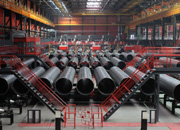 Threeway Steel is known as a professional supplier engaged in manufacturing and distributing a wide range of steel pipe, and our headquarter located the central part of China – Hunan and six associated factories throughout China.
Threeway Steel is known as a professional supplier engaged in manufacturing and distributing a wide range of steel pipe, and our headquarter located the central part of China – Hunan and six associated factories throughout China.
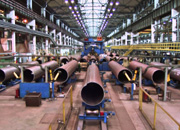 Threeway Steel is known as a professional supplier engaged in designing, manufacturing and distribution of a wide range of steel products with the headquarter located the central part of China – Hunan and six associated factories throughout China.
Threeway Steel is known as a professional supplier engaged in designing, manufacturing and distribution of a wide range of steel products with the headquarter located the central part of China – Hunan and six associated factories throughout China.
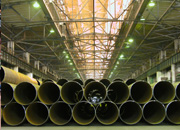 Threeway Steel is known as a professional supplier engaged in designing, manufacturing and distribution of a wide range of steel products with the headquarter located the central part of China – Hunan and six associated factories throughout China.
Threeway Steel is known as a professional supplier engaged in designing, manufacturing and distribution of a wide range of steel products with the headquarter located the central part of China – Hunan and six associated factories throughout China.
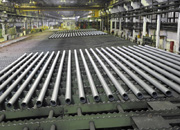 Threeway Steel is known as a professional supplier engaged in designing, manufacturing and distribution of a wide range of steel products with the headquarter located the central part of China – Hunan and six associated factories throughout China.
Threeway Steel is known as a professional supplier engaged in designing, manufacturing and distribution of a wide range of steel products with the headquarter located the central part of China – Hunan and six associated factories throughout China.
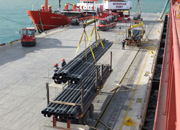 Threeway Steel is known as a professional supplier engaged in designing, manufacturing and distribution of a wide range of steel products with the headquarter located the central part of China – Hunan and six associated factories throughout China.
Threeway Steel is known as a professional supplier engaged in designing, manufacturing and distribution of a wide range of steel products with the headquarter located the central part of China – Hunan and six associated factories throughout China.

